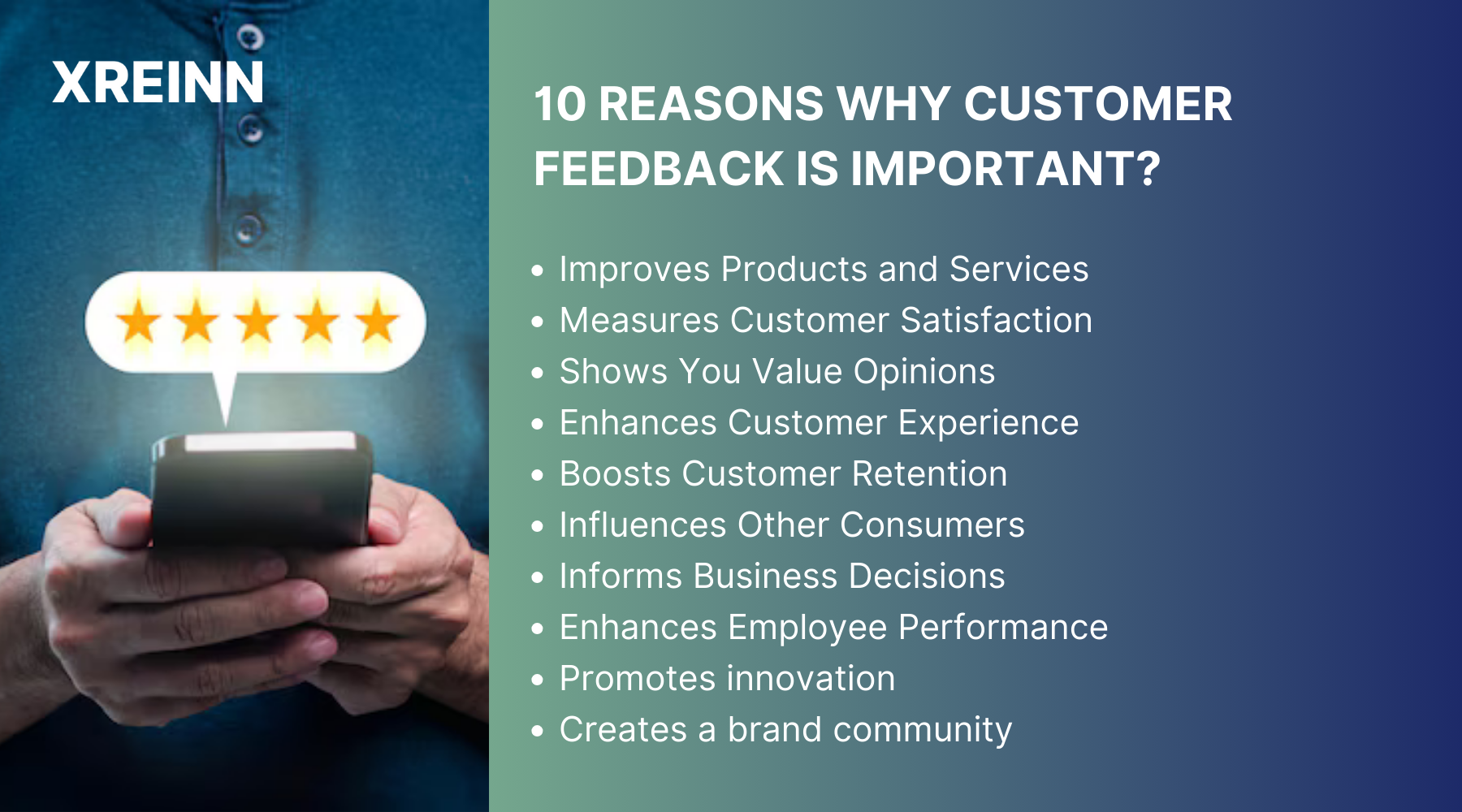Social Listening
Why Customer Feedback Matters: 10 Essential Insights for Business Growth
Jul 15, 2024
Understanding what your customers think about your brand at any moment is important for business growth. Customer feedback provides invaluable insights into their experiences, needs, and preferences, helping you make informed decisions that improve your products, services, and overall customer experience. For small and medium-sized businesses, gathering and using this feedback can be a winning strategy. By actively seeking out and responding to customer feedback, you demonstrate that you value their opinions and are committed to continuous improvement.
This not only helps in building trust and loyalty but also positions your business as customer-centric and adaptable in a competitive market.
Let's explore the 10 reasons why customer feedback is essential for your business growth.
How to Collect Customer Feedback?
Listening to our customers' voices takes various forms, which can sometimes be challenging due to their busy schedules or reluctance to share negative experiences. We employ several effective methods to gather feedback:
Customer Feedback Surveys are distributed via email or posted on our website, while User Interviews provide direct insights through phone or in-person conversations. In-app Feedback prompts allow for real-time responses, and embedding Feedback forms or widgets on our website captures visitor sentiments.
Social Media monitoring can help you collect valuable insights from platform comments, and using data from Support Interactions further improves understanding. Usability Testing provides detailed feedback, and organizing Focus Groups allows us to go deeper into customer preferences and experiences. Each method plays an important role in improving customer satisfaction and refining our business strategies.
10 Reasons Why Customer Feedback is Important to Business?

Here are eight reasons are given below
1. Improve Products and Services
When you launch a new product or service, initial market research provides insights into potential customer needs and preferences. However, real-world use by customers uncovers actual advantages and flaws, along with evolving expectations. With 53% of online shoppers reading product reviews before purchasing, gathering feedback through reviews, surveys, and direct interactions is crucial for continuous improvement.
Customer feedback offers valuable insights into what works and what needs enhancement. Your expertise may guide initial development, but customer opinions ensure the product meets expectations, solves problems, and fulfills needs. Incorporating these insights is essential for maintaining a high Customer Satisfaction Index (CSI), directly influencing long-term market success.
2. Help Measure Customer Satisfaction
Customer satisfaction and loyalty are critical for a company’s financial performance. Positive customer feedback is linked to increased market share, lower costs, and higher revenue. Collecting feedback through rating-based questions helps estimate satisfaction levels and predict financial outcomes.
Net Promoter Score (NPS) is a widely used metric that asks customers how likely they are to recommend your brand on a scale of 0–10. This simple yet effective method helps businesses of all sizes manage and improve customer satisfaction.
3. Shows You Value Their Opinions
By asking for feedback, you show customers that their opinions matter, fostering a sense of involvement and attachment to your company. This engagement helps build strong relationships and brand ambassadors who spread positive word-of-mouth. Happy customers feel valued, believing your primary goal is to solve their problems and meet their needs, not just make money. This customer-centric approach is the right way to run a business.
4. Helps You Create the Best Customer Experience
Modern marketing relies heavily on customer experiences with products, services, and brands. Customers don’t just buy products; they buy the status, courage, or lifestyle associated with them. To ensure loyalty, focus on providing the best experience at every touchpoint. The most effective way to do this is by asking customers what they like and what can be improved.
5. Helps Improve Customer Retention
Satisfied customers stay loyal; dissatisfied ones leave. Regularly collecting feedback helps identify and fix issues, improving satisfaction and retention. Addressing complaints promptly can even turn unhappy customers into loyal advocates, showing your commitment to excellent service.
6. Reliable Source of Information for Other Consumers
In the age of social media, customers trust peer reviews more than advertisements or expert advice. Reviews and testimonials on platforms like Google, Yelp, and specialized review sites influence purchasing decisions. Companies that integrate review systems, like Uber and Airbnb, ensure poor service is identified and corrected. Making customer feedback accessible to both your business and potential customers builds trust and credibility.
7. Provides Data for Business Decisions
In a competitive market, decisions based on solid data are crucial. Customer feedback offers reliable data to guide future strategies, helping you adjust products and services to better meet customer needs. These insights help prioritize investments, ensuring the highest return. Understanding and acting on customer feedback can reveal whether to focus on product development or brand promotion for greater exposure.
8. Enhances Employee Performance
Customer feedback doesn't just benefit products and services; it also plays a crucial role in enhancing employee performance. Feedback about customer service interactions can highlight areas where employees excel and areas needing improvement. This information can guide training and development programs, helping employees improve their skills and better meet customer needs.
Additionally, positive feedback can boost employee morale and motivation, leading to a more engaged and productive workforce.
9. Promotes innovation
Customer feedback is crucial for innovation. By paying attention to what customers are saying, you can identify gaps in the market and areas for improvement that you might not have considered. This proactive approach allows you to stay ahead of the competition by continuously updating and innovating based on real customer needs and trends. Whether it's a new feature, a change in service delivery, or a completely new product line, listening to your customers can spark the next big idea for your business.
10. Creates a brand community
Engaging with customers through feedback helps in building a community around your brand. When customers see that their opinions are valued and acted upon, they feel a stronger connection to your brand. This sense of community builds trust and encourages customers to stand up for your brand within their networks. A loyal community not only provides repeat business but also acts as a buffer during challenging times, offering support and constructive criticism to help your business grow.
Conclusion
Customer feedback is essential for business growth. It provides insights into customer satisfaction, highlights areas for improvement, and supports brand awareness. Feedback helps enhance customer loyalty, reduce retention rates, inform business decisions, and improve employee performance.
It also fosters innovation by identifying customer needs and trends, allowing businesses to stay ahead of the competition. Regularly seeking and acting on customer feedback ensures your business remains competitive and grows in the long term. Utilizing customer feedback as a core component of your strategy is key to sustained success in a competitive market.

Data Analytics
Jun 27, 2024Master key concepts in data analytics with practical tips to enhance decision-making and achieve success in your projects and professional growth

Data Analytics
Jul 01, 2024Learn the essential stages of the data analytics workflow to turn your data into valuable business insights and drive growth.

